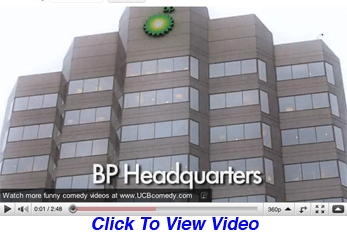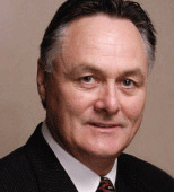|  
Break Up
Oilogopoly
Great Britain was a
great country—proud, full of historical resonance, and less than
100 years ago, it was the most productive nation on earth. While it still
remains a great country, it now has a heavy reliance on financial services
for 35 percent of its gross national product, and most of its former industrial
cities look like sister cities to Detroit, save for the local populations
being dominated by new immigrants from the poorest nations on earth.
In the sixties a very smart politician
named Enoch Powell predicted Britain’s demise to the letter, and
because his views were so radical, he was the subject of all sorts of
abuse and ridicule from the socialist left.
Nobody can deny now that he was right on the money.
If you’re here in the USA and
you think our manufacturing base has been on the decline for the last
twenty-five years, take a trip to England and Scotland and you will see
hundreds of Detroits.
Most flag carriers proudly paint their
aircraft with national cultural emblems and usually the flag appears prominently
somewhere on the fuselage.
Not so with British Airways; ten years
ago they decided to take the flag off the tails (it didn’t really
even resemble the Union Jack) and paint each aircraft individually in
pop art fashion, mainly to resemble the colors in which Willie Mandela,
Nelson’s ex Missus, dressed herself up.
They should have renamed the airline
as well—Ugandan International would have been appropriate.
They started calling themselves BA
instead of British Airways, and the rest is history.
When the directors of BA realized
how much damage was done through loss of identity, they reverted back
to their old colors. Today, the airline is fighting for its very life
as its flight attendants attempt to take them to the cleaners. We are
easily reminded of another abbreviated English company going through similar
travails.
BP was once British Petroleum and,
until Margaret Thatcher’s government, was 100% state owned.
British Petroleum was a huge company
even then, but in so many ways, because of its heritage, it kept its competitors
in check.
Any dividends declared went straight
into the government’s coffers.
There were probably about thirty large
petroleum companies in the 1980s—and they were all competing for
a shrinking resource. The only cowboys in the business were independent
“wild catters” based in Houston.
Whenever they screwed up or were responsible for blow-outs, along came
Red Adair and his team to snuff the fires out.
When John Brown rose to the top of
British Petroleum in the early nineties, he wanted to prove he was business
saavy by reinventing the darling of the London Stock Exchange.
The first thing he did was to give
it the generic name, BP.
 He
then set about colluding with Shell, Exxon and Chevron and within ten
years, the big four transformed what was once a very competitive global
business into an oligopoly. He
then set about colluding with Shell, Exxon and Chevron and within ten
years, the big four transformed what was once a very competitive global
business into an oligopoly.
In the States, BP purchased (amongst
others) Amoco and Atlantic Richfield with the result that BP now controls
the vast majority of crude coming out of the Gulf of Mexico and Alaska.
That is why, apart from CEO Tony Hayward,
every BP official we see on television is American.
They were either employees of the
old ARCO or Amoco.
Successive administrations (particularly
the Bush/Cheney outfit) have been bought and sold by the oil “magnates”
heading the oligopoly.
The result is that they can do what
they like, where they like and how they like.
The culmination of this new order
is the disaster going on right now in the Gulf.
Just weeks ago, President Obama was
proud to declare he was behind more drilling.
He looks quite the fool now.
 And the BP executives look like a
bunch of idiots, too.
And the BP executives look like a
bunch of idiots, too.
Why?
Because despite all the changes within
BP, the company is now coming off as seeming totally bereft of either
a soul or a conscience.
Had BP remained as it was twenty years
ago, it would be Amoco (or whichever company might have taken them over)
fighting for its life.
The oil oligopoly has proven to be
bigger than President Obama’s administration and until we re-invoke
the Sherman Anti-Trust Act and totally regulate the energy business, this
disaster will pale significantly to what could take place into the future.
Julian Keeling
(Julian Keeling is CEO of Consolidators International based
in Los Angeles at LAX)
|



